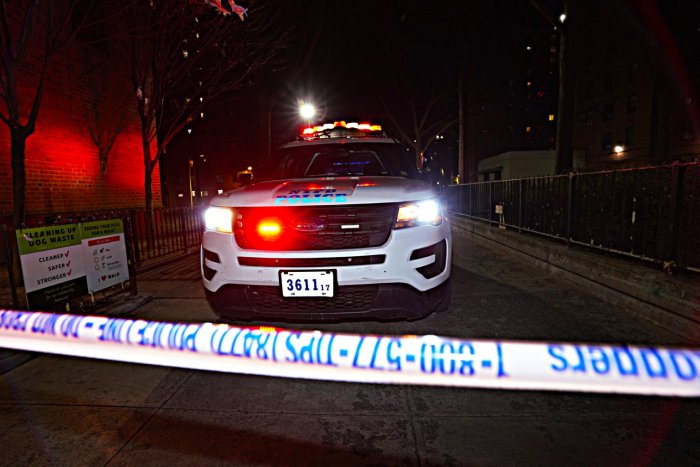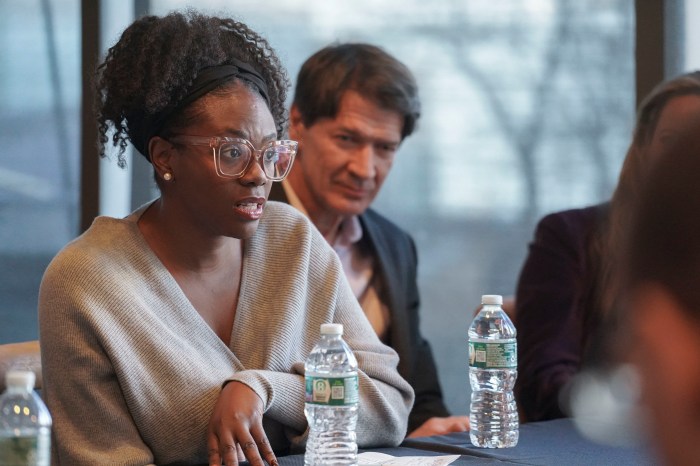By Kenneth Kowald
These are the people who are seeking some $45 billion in cuts to Medicaid, the program providing health care to low-income families and seniors, over the next 10 years; who would cut food stamps for 200,000 to 300,000 individuals and families; who would cut the number of children receiving childcare assistance by 300,000 in 2009. Their actions indicate that they care little about the 36 million Americans who live below the poverty line, or the 18 percent of children living in poverty, or the 45 million Americans who are without health insurance, to say nothing of the millions who are underinsured, or the 13 million children who live in households where people have to skip meals or eat less to make ends meet.A study by the Robert Wood Johnson Foundation estimates that 20 million working – that's working! – Americans are uninsured. Over a 12-month period, 41 percent were unable to see a doctor when needed, because they didn't have the money. And 56 percent had no private doctor or health care provider. We are the richest country in the world, yet 40 other countries do better than we do on infant mortality and we now rank 84th in the world for measles immunization and 89th for polio.So much for the hypocrites who preach “the culture of life” and do nothing to help those in need.But, thank heaven, there are others who quietly, but effectively, do something about the world around them. They talk little, but do much.They are the ones who are trying to make sure people have enough to eat in this diverse borough in the greatest city in the richest country in the world.Their work is needed more than ever. There are approximately 1,300 soup kitchens and pantries in New York City, trying to feed more than 1 million people. They are fighting a rear-guard battle every day, as those who so easily call on the deity on every political occasion turn their backs on reality by cutting back on federal emergency food and shelter programs. In Queens alone, it has been estimated that demand in the food banks increased by 90 percent in 2003.I find that many who use the phrase “faith-based,” seem to be trying to break down the needed separation of church and state, but here is one instance where a house of worship is doing something unusual and effective to help. Other religious groups in Queens and elsewhere in the city are doing good work, too, but this is a unique story.The First Presbyterian Church of Newtown is one of the oldest churches in the city and the oldest in Queens, its first building dating to 1652 – but its mission is a very modern one.Last year, aided by a $2,500 grant from the Presbytery of New York City, the church dedicated about an acre of land (you can see it from Queens Boulevard, near Grand Avenue) to a vegetable and fruit garden, called Greens for Queens Urban Farm, which serves as an outreach program for local youth and provides food for pantries in Jamaica and Long Island City.In 2004, more than 1,000 pounds of fruits and vegetables were donated. This year, thus far, greens, spinach, cabbage, cauliflower and broccoli have been planted, and peach and pear trees may be yielding fruit. On Fridays, from 3 p.m. to 6 p.m. starting in mid-June, there will be a flower and herb market, with all proceeds going to support the garden. The church is working on this program with Just Food, a non-profit organization that “works to develop a just and sustainable food system in the New York City region.”The garden, the work of the church; the Green Guerillas, a citywide greening group, and South Asian Youth Action, connects urban youth to the earth, provides more educational opportunities and helps the participants learn business and marketing skills.Here is the “culture of life” in action. It is very much worth a visit.The First Presbyterian Church of Newtown has a fascinating history, which you can learn about by going to its Web site, www.fpcn.org. To learn more about the Greens for Queens Urban Farm, call 718-639-3126, or visit www.greensforqueens.orrg.President Franklin D. Roosevelt said: “The test of our progress is not whether we add more to the abundance of those who have much; it is whether we provide enough for those who have too little.”FDR may not have known it, since he did not wear his religion on his sleeve like far too many politicians today, but he could have taken those sentiments from the Book of Acts of the Apostles, 2:44-45. His words and the actions of the apostles certainly apply today to what could be called God's Acre in Elmhurst.(Those who can use compost for their gardens may obtain unlimited free amounts from the New York City Department of Sanitation on Saturday and Sunday, June 11 and 12. To find out about it, call the Compost Project at the Queens Botanical Garden at 718-539-5296.)



































